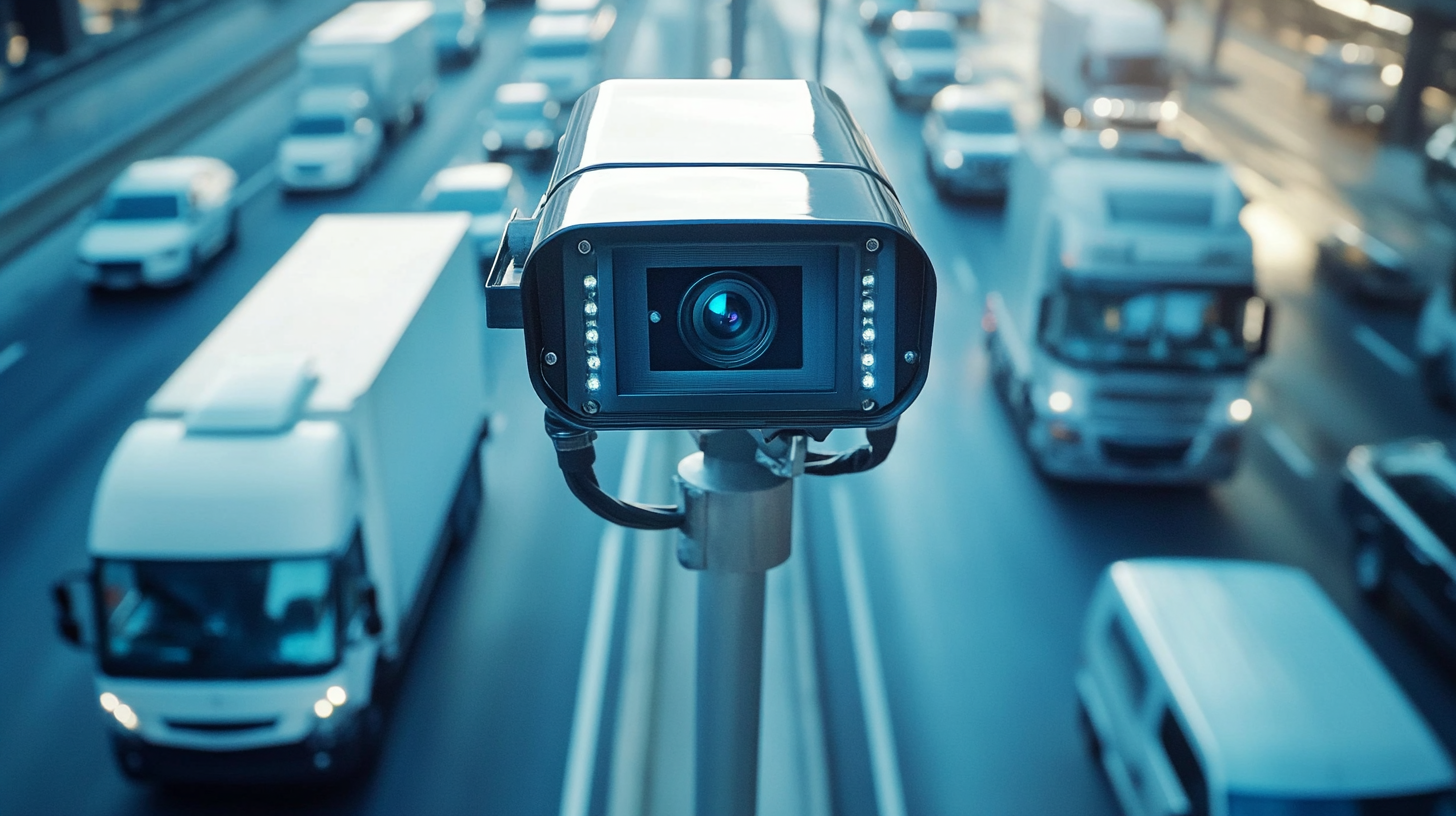 In today's fast-paced logistics and transportation industry, the adoption of advanced technologies is crucial for enhancing safety, efficiency, and accountability. As per a recent industry report, the market for Fleet Camera Systems is projected to grow significantly, reaching an estimated value of $4.6 billion by 2025, driven by the increasing need for fleet operators to monitor driving behavior and mitigate risks. Implementing robust Fleet Camera Systems not only aids in reducing accidents and insurance costs but also provides invaluable insights for fleet optimization.
In today's fast-paced logistics and transportation industry, the adoption of advanced technologies is crucial for enhancing safety, efficiency, and accountability. As per a recent industry report, the market for Fleet Camera Systems is projected to grow significantly, reaching an estimated value of $4.6 billion by 2025, driven by the increasing need for fleet operators to monitor driving behavior and mitigate risks. Implementing robust Fleet Camera Systems not only aids in reducing accidents and insurance costs but also provides invaluable insights for fleet optimization.
With various types of cameras and features available—ranging from dash cams to multi-camera setups—choosing the right system can be daunting. This blog will guide you through critical considerations and help you select the ultimate Fleet Camera Systems tailored to your business needs.
When selecting a fleet camera system for your business, the importance of reliable after-sales support cannot be overstated. After-sales support, which includes maintenance, troubleshooting, and continuous upgrades, can significantly enhance the utility of your fleet camera system. A recent study indicated that 70% of businesses reported improved operational efficiency in fleets that received consistent technical support and training. This underscores the necessity of choosing providers who offer robust support, ensuring that any issues are promptly addressed, thus minimizing downtime and maximizing productivity.

In the context of emerging technologies, such as AI-powered vehicle inspection systems, effective after-sales support plays a critical role. As fleets increasingly adopt advanced technologies to boost safety and efficiency, the need for dependable support to maintain these systems becomes paramount. According to industry reports, 68% of fleet managers believe that enhanced support services lead to better integration of new technological solutions. This reflects the growing recognition that the success of modern fleet operations heavily relies on not only the technology itself but also the support ecosystem that surrounds it. Investing in a fleet camera system with comprehensive after-sales services can foster long-term success and adaptability in an evolving market.
When evaluating the repair costs associated with fleet camera systems, businesses must consider several critical factors. The initial investment in camera systems may seem daunting, but understanding the long-term financial implications can help companies make informed decisions. Factors such as the frequency of repairs and replacements, technological advancements, and the potential for functional upgrades play a vital role in determining the overall budget. For instance, more sophisticated systems equipped with advanced features may incur higher maintenance costs compared to basic models, yet they can significantly enhance operational efficiency and reduce the likelihood of accidents.
Moreover, implementing in-vehicle monitoring systems can serve as an additional layer of safety while also providing insights into driver behavior, which may lead to reduced repair costs over time. By analyzing driving patterns and addressing issues proactively, fleet managers can minimize wear and tear on vehicles, thereby extending their lifecycle and lowering costs associated with repairs. As businesses weigh their options for fleet camera systems, they should take into account the potential savings derived from improved safety measures and more efficient vehicle management.
| Camera Type | Repair Cost Range | Average Lifespan | Common Issues | Recommended Maintenance |
|---|---|---|---|---|
| Standard Dash Cameras | $100 - $300 | 3 - 5 years | Lens damage, software glitches | Regular software updates, clean lens |
| Dual-facing Cameras | $250 - $500 | 3 - 5 years | Power failures, connection issues | Check connections, inspect wiring |
| 360-degree Cameras | $500 - $800 | 4 - 6 years | Calibration loss, lens scratches | Recalibrate yearly, use protective covers |
| Mobile DVR Systems | $800 - $1500 | 5 - 7 years | Overheating, video storage failure | Ensure ventilation, clear storage regularly |
When selecting a vendor for your fleet camera systems, prioritizing strong maintenance services is crucial. A report from the American Transportation Research Institute indicates that 30% of fleet downtime can be attributed to equipment failure or inadequate maintenance support. Choosing a vendor that offers robust maintenance services can significantly mitigate these risks and ensure your operations run smoothly. Look for vendors who provide 24/7 support, regular system upgrades, and comprehensive training for your staff, as this can enhance both the longevity of your systems and the overall safety of your fleet.
Moreover, having a proactive maintenance plan can lead to cost savings in the long run. According to a Fleet Management Association study, fleets that invest in well-maintained camera systems can reduce overall operational costs by up to 15%. By selecting a vendor with strong maintenance services, you not only ensure compliance with safety regulations but also enhance accountability within your fleet. These advantages create a more efficient, reliable, and safer transportation environment, which is essential in today’s competitive market.
Investing in fleet camera systems is a significant financial commitment for businesses, and understanding warranties can help protect this investment. A comprehensive warranty not only safeguards your equipment against defects but also ensures that you receive necessary repairs or replacements without incurring excessive costs. According to industry reports, up to 60% of companies that deploy fleet camera systems experience reduced liability insurance premiums due to enhanced safety measures, demonstrating that a good warranty can positively impact your bottom line.
When assessing warranties for fleet camera systems, consider the duration and coverage details. Reports indicate that companies with extended warranties experience a 30% decrease in unexpected repair costs over five years compared to those with standard warranties. This highlights the importance of selecting a provider that offers comprehensive coverage, including accidental damage and software updates. As technology evolves, keeping your systems current is vital, and robust warranty options can ensure you never fall behind while protecting your investment.

When it comes to fleet operations, service quality plays a crucial role in determining overall efficiency. High-quality service can significantly enhance the performance of fleet management by ensuring that vehicles are maintained properly and that any issues are addressed promptly. This proactive approach minimizes downtime, allowing businesses to maintain productivity and meet client demands seamlessly. Therefore, investing in a reliable fleet camera system not only facilitates better monitoring of vehicle conditions but also enhances driver behavior, leading to safer operations and improved service delivery.
Moreover, the integration of advanced camera systems can provide valuable insights into service quality metrics. By analyzing footage, fleet managers can identify patterns in vehicle usage and driver performance, leading to informed decision-making. This data-driven approach allows for targeted training and improvements, which can directly impact customer satisfaction. As fleets become more efficient through enhanced service quality, businesses can expect a positive ripple effect, ultimately translating into increased revenue and customer loyalty.